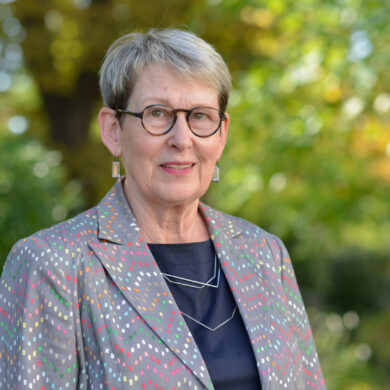Professor Dr. Ulla Bonas studied Biology at the University of Cologne from 1974 to 1980. In 1984, she completed her PhD thesis in Genetics at the University of Cologne with a dissertation entitled In-vitro cloning of a transposable element in the chalcone synthase gene of Antirrhinum majus. From 1985 to 1987, she worked as a postdoc at the University of California, Berkeley, supported by fellowships from DAAD, DFG and the Max-Planck society. From 1988 to 1993, she was the Leader of an Independent Research Group at the Institute for Gene Biology Research in Berlin. In 1992, she habilitated in Genetics at the Free University of Berlin with a thesis on Molecular genetic analysis of the interaction between Xanthomonas campestris pv. vesicatoria and the plant. From 1993 to 1998, Ulla Bonas was a Groupleader (Directeur de Recherche; permanent) at the CNRS Institute of Plant Sciences in Gif-sur-Yvette, France. From 1998 until 2021, she was a Full Professor of Genetics at the Martin Luther University Halle-Wittenberg, Halle, Germany. Her research was focused on the genetic and molecular analysis of pathogenicity and plant disease resistance in the Xanthomonas/plant interaction.
Ulla Bonas is a member of the European Molecular Biology Organization (EMBO) and in 2011 received the prestigious Gottfried Wilhelm Leibniz Price of the German Research Foundation (DFG). Since 2008, she is a member of the German National Academy of Sciences Leopoldina, and since 2015, she is Vice-President of the Leopoldina.
International cooperation is indispensable in science to effectively address global challenges. At the same time, it is important to carefully weigh risks and benefits when collaborating with partners worldwide.
In a changing geopolitical environment aspects of research security have become more relevant in scientific ventures. Nevertheless, the Leopoldina remains convinced that international scientific collaboration can fundamentally contribute to building bridges between societies and keeping channels of dialogue open.”

